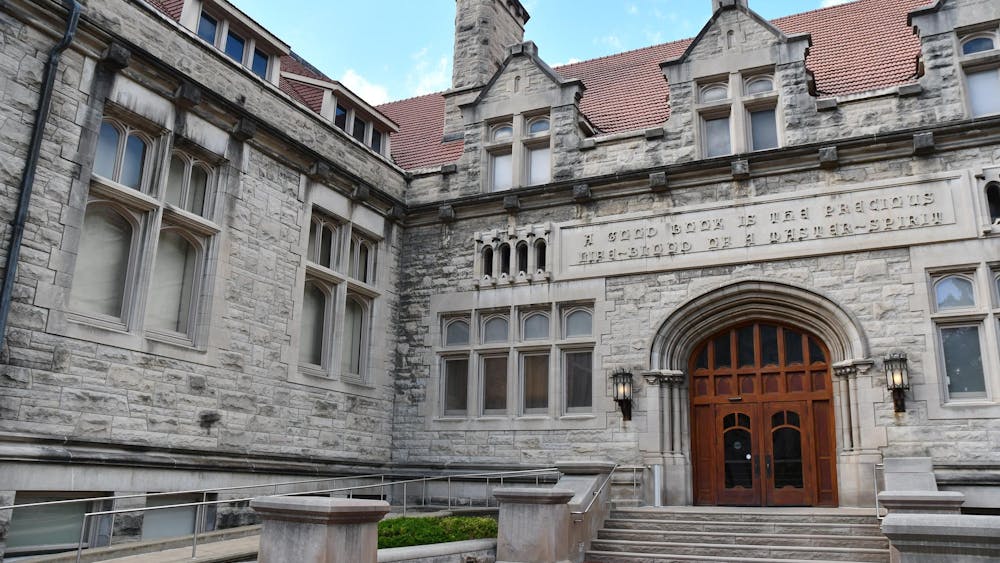In the past decade, mass shootings have caused increasing panic across the United States. In April 1999, Eric Harris and Dylan Klebold attacked their high school and killed 13 fellow students. It was the deadliest high school shooting in history and prompted the gun debate we know today.
However, instead of passing legislation and cracking down on the sale and ownership of firearms, serious conversations on gun control have been brushed off in favor of the Second Amendment.
The United States stays stagnant, other countries act
After Australia’s Port Arthur massacre, in which 35 people died and 23 were wounded, Australian authorities passed legislation that cracked down on gun ownership within months.
These new restrictions outlawed semi-automatic and fully automatic firearms and instituted a 28-day waiting period for purchasing firearms, new licensing requirements and a national gun registry.
After this legislation passed, Australia has seen a decline in gun-related deaths, including homicide and accidental deaths. More notably, the country's tally of mass shootings dropped from 13 during the 18 years before Port Arthur to zero after this new legislation.
The first argument that arises is: “Australia isn’t like the United States!” And that’s correct — the U.S. refuses to take any written action against gun violence in favor of a constitutional amendment created for civilians to defend themselves against their oppressive government 250 years ago.
Before the Port Arthur massacre, Australia was a country that, like the U.S., had a high rate of gun ownership and a “rugged” sense of individualism, according to the Atlantic.
If Australia can figure out that public safety is more important than the hobby of a gun collector, the U.S. needs to jump on the bandwagon.
A generational divide
Younger Americans may be ready to make the move that older generations won’t.
In a 2010 Pew Research poll, men aged 18-49 as well as men older than 50 both deemed protecting the right to own guns as more important than controlling gun ownership. Fifty-six percent of the men older than 50 who participated in the poll indicated it was more important to protect the right to own guns.
It’s no coincidence that the people in charge of making legislation fall into that category.
As of April 2017 in another Pew Research study, 79 percent of Republicans support gun rights, but only 18 percent of Democrats support gun rights. As of October 2017, 60 percent of people favor increased gun regulations.
The biggest difference in life experience between millennials and older generations is that seniors have seen more war than mass shootings, but millennials are the opposite.
The closest that millennials have gotten to ground war was the war in Iraq after the Sept. 11, 2001, attack. Even then, there was no draft, and although enlistments into the United States Armed Forces increased, it was not mandatory to serve.
As for the Vietnam War, the Cold War and World War II, war was brought to the American home front by the draft — which likely affects the sentiments of those currently legislating.
Millennials have never seen the U.S. government force citizens into war. Millennials have grown up with the “war against terrorism,” but largely watched from safely across the ocean.
American men older than 50 may not have been so lucky.
Living through wartime affects how you feel about gun control. For the older generation that watched communism and fascism ravage the countries the U.S. was fighting against, it rings true that the people should be able to defend themselves against a corrupt government.
However, for millennials growing up a safe distance from the cost of war, keeping arms to defend against a malicious government that they have never known seems like an almost paranoid idea.
For the older generation, it seems that a fascist government is more imminent than a kid shooting up a school, despite statistics that suggest otherwise.
Millennials have watched the Columbine shooting, Virginia Tech, Sandy Hook, Aurora, Charleston, Pulse Nightclub and now Las Vegas and Sutherland Springs — all acts of homegrown terrorism fueled by the United States’ lax gun laws.
Out of all known guns used in mass shootings, more than half of them were attained legally. The U.S. has virtually no regulations on how many guns a person can own.
As of 2012 there were 1.6 million AR-15 rifles produced and not exported in the U.S. — and that’s only one type of semi-automatic gun.
The Las Vegas shooter was found with 23 assorted firearms in his hotel room after he killed himself, murdered about 60 people and wounded about 500.
No one, even after passing a background check, should be allowed to own 23 firearms.
Gun control does not mean “no guns allowed”
Gun control means creating a registry and mandatory check-ins for firearm owners. It means a waiting period to buy firearms, outlawing sales of firearms at conventions, cutting off civilian access to assault rifles. It means being allowed to own a gun, but one that can’t hold more than six bullets.
Older generations are fearful of gun control because they are fearful of the government becoming overreaching.
Yet when mass quantities of people are dying because of easy access to firearms now, that raises no alarms to them.
Older generations need to drop the idea that the Iron Curtain is coming for us when our biggest threats are angry men allowed to own a surplus of weaponry.
Sen. Chris Murphy, D-Connecticut, in an interview with CBS raised the point of the danger of lawful assault rifles after the Las Vegas shooting:
America’s resistance to stricter gun control laws is costing people’s lives — and it falls on the older generation. Those resistant to gun control need to realize that their reluctance equals more tragedy.
anneande@indiana.edu





